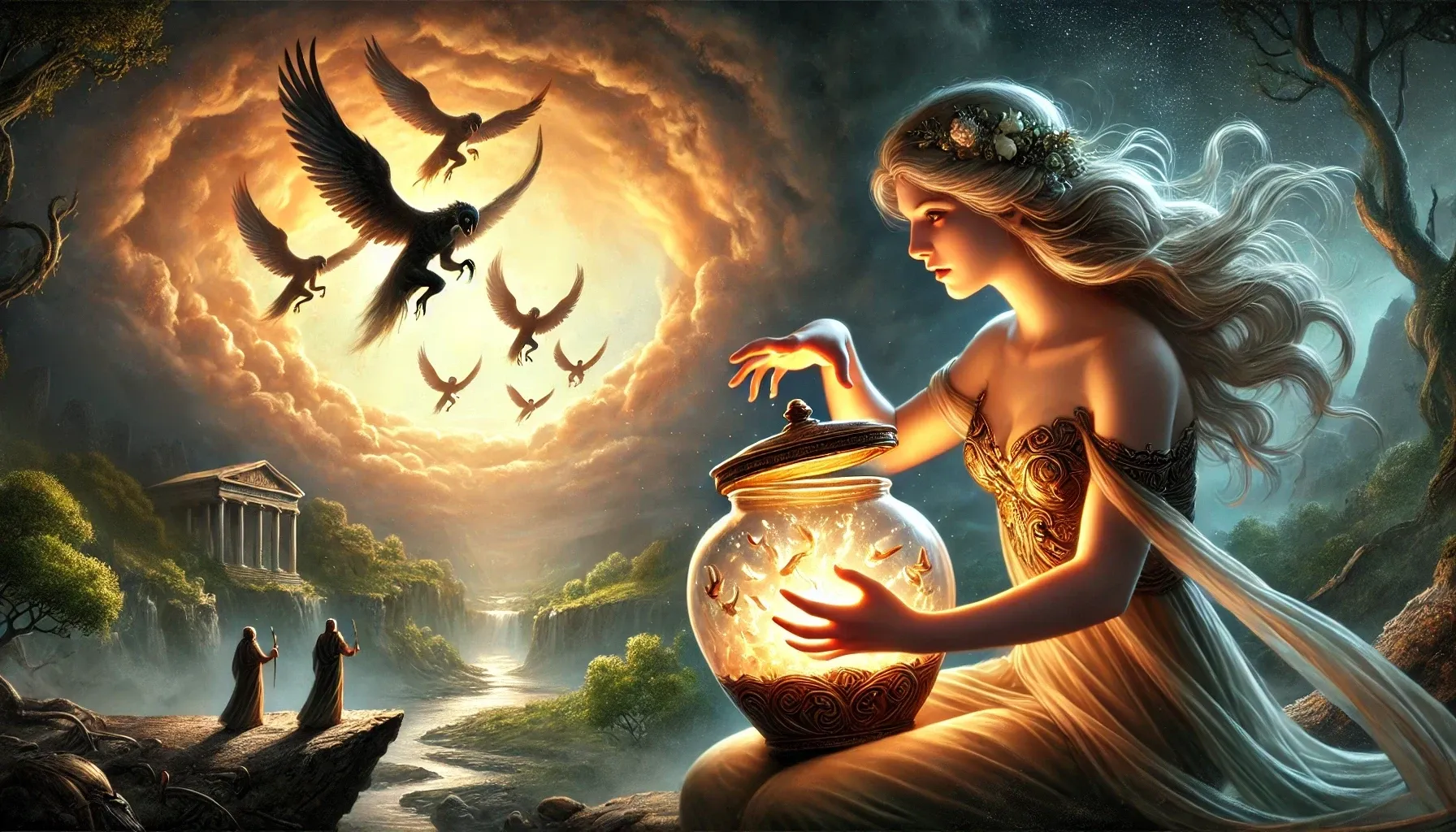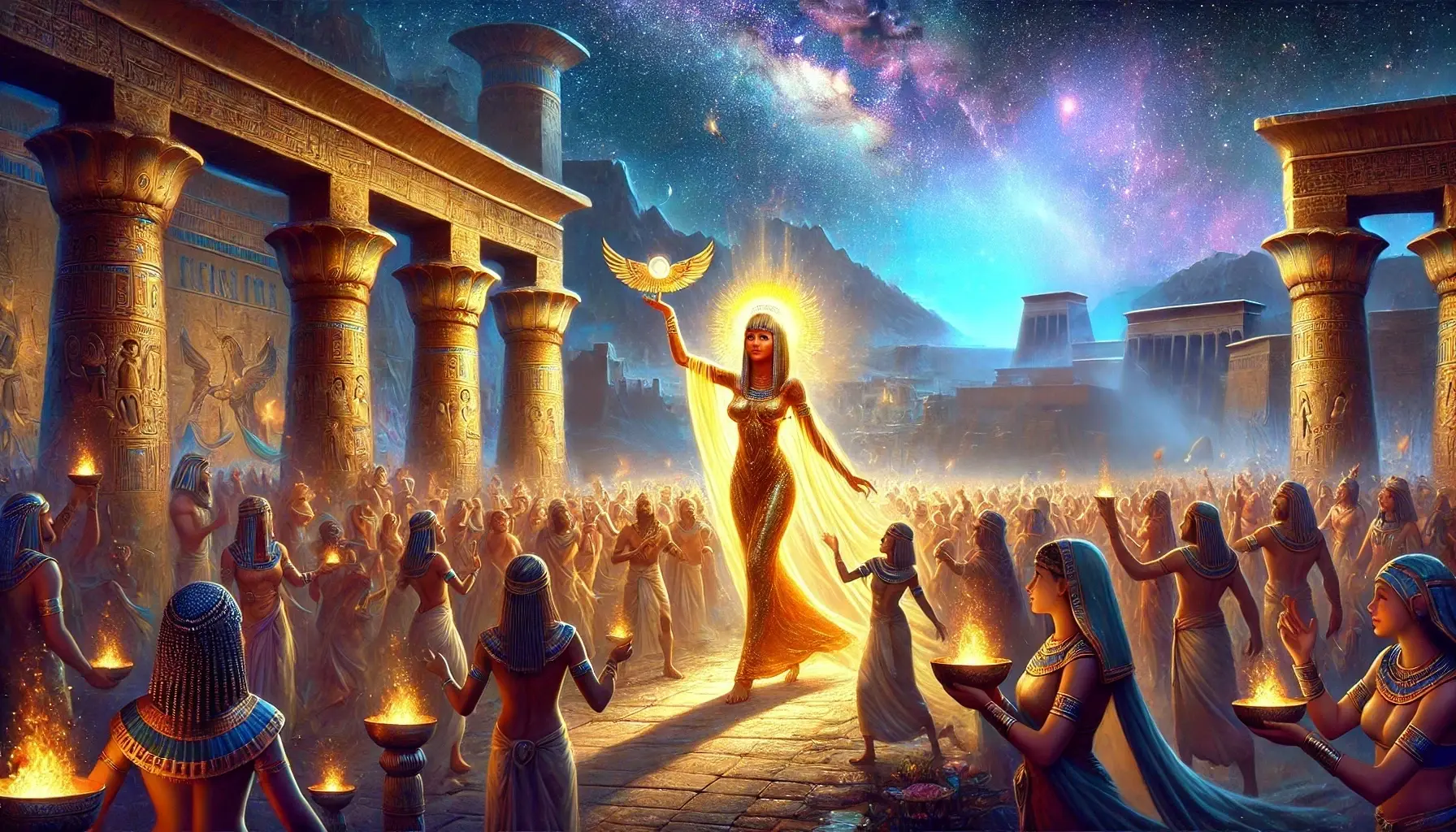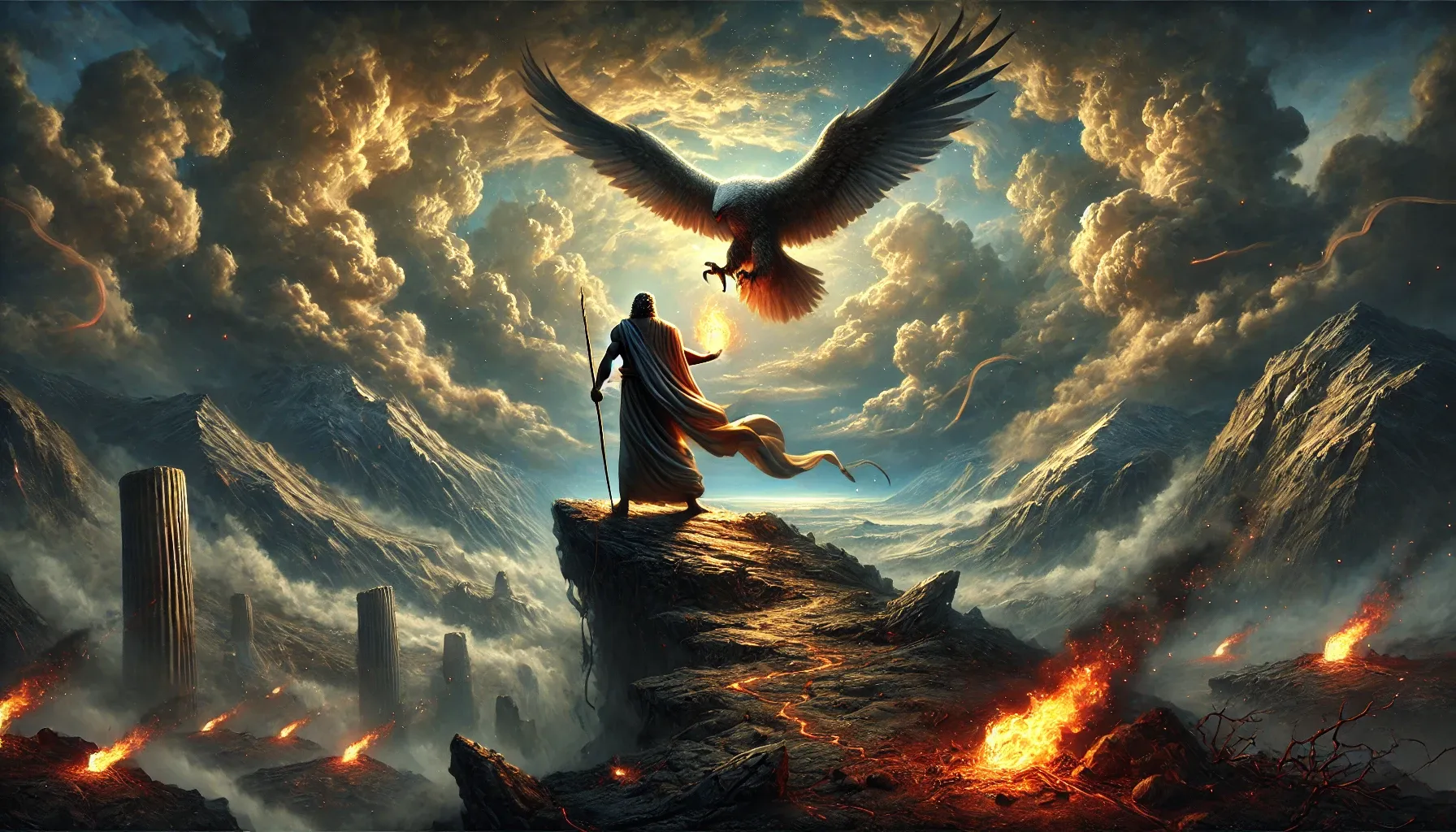The Crafting of Pandora
In the age when gods walked among mortals, Zeus brooded upon the arrogance of Prometheus. The Titan had defied the king of the gods, stealing fire from the heavens to gift mankind. This fire, a luminous spark of knowledge and craft, threatened to elevate humanity beyond their allotted station. In his wrath, Zeus devised a cunning reprisal, as beautiful as it was ruinous.
He summoned Hephaestus, the divine artisan, to mold a being of unparalleled beauty. From clay, Hephaestus sculpted the figure of a woman, her form delicate yet commanding, her face a masterpiece of serene allure. Athena, goddess of wisdom, breathed life into her and adorned her with garments woven of silver and gold. Aphrodite brushed her lips with the honey of irresistible charm, while the Graces crowned her with an ever-blooming garland. The gods named her Pandora, “All-Gifted,” for each immortal had bestowed upon her a singular trait.
But within this radiance lay an insidious design. Zeus placed into Pandora’s hands a jar—a pithos—sealed tightly against prying eyes. He whispered to her that it held gifts meant for humanity’s prosperity, yet his true intention remained veiled. Thus prepared, Pandora descended to the mortal realm, a gleaming emissary of divine will.
The Meeting of Pandora and Epimetheus
Pandora’s arrival upon Earth was heralded by a burst of sunlight breaking through thick clouds. Mortals marveled at her radiance, her steps light as dew upon grass. Among those who gazed upon her with wonder was Epimetheus, the brother of Prometheus. He was a simple soul, given to hasty judgments and an open heart, unlike his foresighted sibling.
Prometheus had warned Epimetheus to shun any gifts sent by Zeus, for the king of gods seldom acted without treachery. Yet, when Pandora approached, her presence overwhelmed all caution. She extended the pithos to him, her eyes shimmering like a lake at dusk. Her voice, soft and lilting, promised treasures for mankind’s flourishing. Epimetheus, entranced by her beauty and sweet words, accepted her gift without hesitation, his brother’s admonitions swept aside like dry leaves before a gale.
That night, a feast was held in Pandora’s honor. Her laughter rang like chimes, and her movements seemed to weave a spell upon all who beheld her. Yet, even as mortals celebrated, a shadow lingered over the jar, its seal unbroken yet exuding an aura of restrained menace. Pandora’s gaze often drifted to it, her curiosity a flame licking at the edges of her resolve.
The Temptation
Days passed, and Pandora found herself alone with the pithos in the quiet hours of dawn. Her mind, stirred by Athena’s gift of wisdom, grappled with the mystery of its contents. Zeus’ cryptic words echoed in her thoughts: “Within lies the destiny of mankind.” What destiny, she wondered, could rest within so humble a vessel?
The pithos seemed to hum faintly, a sound too soft for mortal ears but one that stirred the divine essence within her. The golden seal gleamed, its intricate design a barrier as much to her hands as to her growing need to unveil the truth. She pressed her ear to its side, imagining she heard whispers, or perhaps the rustle of wings. It was not malice that drove her to act, but the overwhelming ache of the unknown, a yearning seeded within her by the gods themselves.
As dawn broke on the seventh day, Pandora resolved to lift the lid. The world outside was still, bathed in the fragile light of early morning. With trembling hands, she broke the seal and opened the jar.
The Unleashing
No sooner had the lid been lifted than a cacophony erupted, as if the air itself had splintered. From the jar spilled a torrent of shadowy forms, each bearing wings of gossamer yet radiating dread. These were the curses Zeus had hidden—sickness, despair, greed, and countless other afflictions, each more insidious than the last.
They surged forth like a dark storm, their forms twisting and vanishing into the wind, where they would forever haunt the hearts of men. Pandora’s cry of alarm shattered the morning silence, summoning Epimetheus to her side. Together, they attempted to close the lid, but it was too late; the jar’s contents had escaped, save for one last presence.
Within the pithos, faint yet persistent, was a light—Hope. It lingered, trembling as if uncertain whether to emerge. Pandora’s tears fell freely as she gazed into the jar, her heart heavy with the weight of her actions. Epimetheus, too, stood silent, his earlier joy now replaced by grim realization.
The Gift of Hope
Hope remained, shining faintly yet resolutely. It was no grand radiance, no conquering flame, but a gentle ember that promised resilience in the face of suffering. Zeus had not intended it as a mercy; rather, it was his cruel jest, a salve that would prolong human endurance without ever alleviating their plight. Yet, in that moment, Pandora saw it as a fragment of redemption.
She reached into the jar and cupped her hands around the light. It warmed her palms, a fragile thing yet unyielding. With trembling steps, she carried it outside, where the shadows of unleashed calamities still lingered at the edges of the horizon. Mortals gathered, their faces etched with newfound fears, their laughter silenced. To them, Pandora extended her gift.
“This is all I can offer,” she said, her voice breaking. “It is not enough to undo what has been done, but it may be enough to endure.”
The people accepted it, their trembling hands mirroring hers. As the light of Hope spread among them, their despair softened. Though the afflictions released from the jar would plague them endlessly, Hope would burn quietly within their souls, a counterpoint to their suffering.
The Lingering Shadows
Pandora’s name became both a curse and a legend. She wandered the earth, burdened by the knowledge of her role in humanity’s fate. Yet, wherever she went, she saw the light she had given flourish in small but profound ways. A farmer, broken by drought, planted seeds with a trembling hand, trusting the rains would come. A mother, cradling her sick child, sang lullabies with a voice trembling but steady.
In time, Pandora came to a desolate hill overlooking a restless sea. There she knelt, the wind tangling her hair and the scent of salt sharp in her nose. She placed the pithos, now empty, upon the ground and sealed it once more. The lid bore the scars of its opening, yet it remained a testament to the fragility and resilience of mortal lives.
The Final Vision
As the sun dipped below the horizon, casting the sea in hues of amber and crimson, Pandora beheld a vision. From the shadows of the released curses emerged figures cloaked in darkness, their forms indistinct yet pulsing with quiet power. They did not approach her, nor did they speak, but their presence filled the air with a mournful resonance.
Then, from the faint glow of the pithos, a single spark leapt forth. It hovered before Pandora, illuminating her tear-streaked face before ascending into the twilight. It hung there, a lone star in an encroaching night. The figures dissolved into the gathering darkness, leaving Pandora alone with her thoughts and the faint, enduring glow of the star above.
Her lips parted, releasing a breath she did not know she had held. “Even in the void,” she whispered, “there is light.”
The sea roared below, its waves crashing against the rocks in a rhythm both relentless and eternal. Pandora rose, the wind carrying her words into the fading day. The star remained, suspended in the vast expanse, a fragile yet defiant ember against the consuming night. Thus, she walked away, her silhouette merging with the dusk, leaving behind a world irrevocably changed yet imbued with the faint promise of hope.



